Herman Bavinck (1854-1921)
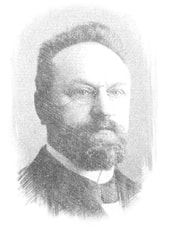
Herman Bavinck (13 December 1854 – 29 July 1921) was a Dutch Calvinist theologian and churchman. He was a significant scholar in the Calvinist tradition, alongside Abraham Kuyper, B. B. Warfield, and Geerhardus Vos. After his high school education, Bavinck first went to the Theological School in Kampen in 1873, but then moved on to Leiden for further training after one year in Kampen. He wrote in his student journal notes that he was motivated to transfer his studies by the preaching of the pastor Johannes Hendricus Donner , who was also ministering in Leiden by that time. He studied under prominent faculties such as Johannes Scholten and Abraham Kuenen, and finally graduated in 1880 from the University of Leiden having completed a dissertation on the ethics of Ulrich Zwingli. A year later, Bavinck was appointed Professor of Dogmatics at Theological School in Kampen.
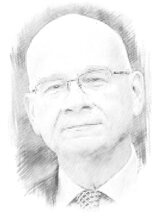 Tim Keller
Tim Keller
Alternative to WorldviewPersonality and Worldview by J. H. Bavinck addresses these concerns and provides a far more nuanced understanding of worldview that, in my opinion, largely escapes these critiques. His emphasis on worldview’s relationship to personality shows that worldview is much more than a set of bullet points on a blackboard. This approach guards against seeing worldview as a mere intellectual framework passed on by intellectual means. Personality and Worldview casts worldview as not only something that forms but also something we deploy in becoming more thoughtful and “objective” in our formation.
His unique contribution—the distinction between a “worldvision” and a “worldview”—explains why so few people live out of a consistent and coherent worldview. The worldvision (or world “mindset” or “mentality”) is a set of basic intuitions picked up from our environment, consisting in simplistic and reductionistic ideas through which we view reality—as through spectacles. A worldview, however, is more like a map, never fully finished in this life, in which we work out the implications of Christianity for every area of life in our time and place.
Bavinck’s emphasis on psychology entails community formation (though he often leaves that implicit). Personality and Worldview in many ways reflects the psychology of an earlier time, and yet it recognizes that our “personality” is not only, as Eglinton explains in his introduction, the result of “the idiosyncrasies of [our inborn] temperament[s]” but “a set of intuitions about the world formed in all individuals by their family and home environment, their teachers and education, and the broad culture within which they live” (12). Here Personality and Worldview anticipates Charles Taylor’s concept of worldview as a “social imaginary”—the way a community of people learns to imagine the world.
The emphasis by J. H. Bavinck and his uncle, Herman Bavinck, on worldview as mapmaking is a crucial idea. Developing a worldview is an effort to transcend the limitations and reductionisms of our worldvision.
If a worldview is something we painstakingly work out our whole lives, several things follow:
-Tim Keller; Gospel Coalition; Tim Keller on How to Reexamine Your Worldview 6.7.23
This article is adapted from Tim Keller’s foreword to Personality and Worldview by J. H. Bavinck, translated and edited by James Eglinton (Crossway, April 2023)
His unique contribution—the distinction between a “worldvision” and a “worldview”—explains why so few people live out of a consistent and coherent worldview. The worldvision (or world “mindset” or “mentality”) is a set of basic intuitions picked up from our environment, consisting in simplistic and reductionistic ideas through which we view reality—as through spectacles. A worldview, however, is more like a map, never fully finished in this life, in which we work out the implications of Christianity for every area of life in our time and place.
Bavinck’s emphasis on psychology entails community formation (though he often leaves that implicit). Personality and Worldview in many ways reflects the psychology of an earlier time, and yet it recognizes that our “personality” is not only, as Eglinton explains in his introduction, the result of “the idiosyncrasies of [our inborn] temperament[s]” but “a set of intuitions about the world formed in all individuals by their family and home environment, their teachers and education, and the broad culture within which they live” (12). Here Personality and Worldview anticipates Charles Taylor’s concept of worldview as a “social imaginary”—the way a community of people learns to imagine the world.
The emphasis by J. H. Bavinck and his uncle, Herman Bavinck, on worldview as mapmaking is a crucial idea. Developing a worldview is an effort to transcend the limitations and reductionisms of our worldvision.
If a worldview is something we painstakingly work out our whole lives, several things follow:
- Worldview isn’t in this metaphor a finished weapon to be wielded against opponents—it guards against triumphalism in that regard.
- It’s always unfinished and growing. That’s humbling as well.
- A Christian in Indonesia wouldn’t be developing the exact same map as a Christian in Scotland. If you’re applying the Christian’s doctrines to all of life, the questions and issues one faces will vary in different places. As such, although Personality and Worldview doesn’t say this explicitly, it gives us the basis for the thought there may be overlapping and noncontradictory but somewhat different Christian worldviews in different cultures. That also undermines triumphalism.
-Tim Keller; Gospel Coalition; Tim Keller on How to Reexamine Your Worldview 6.7.23
This article is adapted from Tim Keller’s foreword to Personality and Worldview by J. H. Bavinck, translated and edited by James Eglinton (Crossway, April 2023)
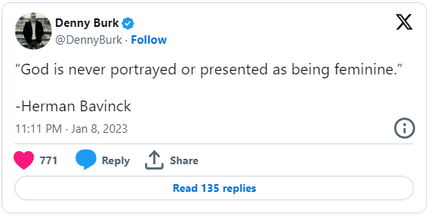
What happens when you tweet in 2023 that God is not “feminine”?
Denny Burk, a professor of Biblical Studies at Boyce College, the undergraduate school of the Southern Baptist Theological Seminary in Louisville, Kentucky, found out firsthand after he shared a few quotes from the book The Christian Family, written by Dutch Calvinist theologian Herman Bavinck. In a blog post Monday, Burk shared a statement from Bavinck in which the author wrote, “God is never portrayed or presented as being feminine” in the pages of Scripture. After receiving “a lot of negative interaction” following the tweet, Burk offered additional context for Bavinck’s statement in which Bavinck discusses how the Bible portrays God with respect to the exclusiveness of sexual characteristics. --Ian M Giatti; Christian Post: Christian prof faces backlash on Twitter for sharing theologian's quote saying God is not 'feminine' 1.12.23
Denny Burk, a professor of Biblical Studies at Boyce College, the undergraduate school of the Southern Baptist Theological Seminary in Louisville, Kentucky, found out firsthand after he shared a few quotes from the book The Christian Family, written by Dutch Calvinist theologian Herman Bavinck. In a blog post Monday, Burk shared a statement from Bavinck in which the author wrote, “God is never portrayed or presented as being feminine” in the pages of Scripture. After receiving “a lot of negative interaction” following the tweet, Burk offered additional context for Bavinck’s statement in which Bavinck discusses how the Bible portrays God with respect to the exclusiveness of sexual characteristics. --Ian M Giatti; Christian Post: Christian prof faces backlash on Twitter for sharing theologian's quote saying God is not 'feminine' 1.12.23
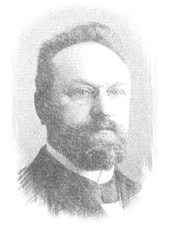 Herman Bavinck Files
Herman Bavinck Files
“Scientific information about the universe does not displace God. Some have said that they searched the heavens and did not see God. The universe with its measureless spaces remains a vast mystery to us, and those who do not find God in their immediate presence, in their heart and conscience, in the Word and the Christian community, will not find him in the universe either, even though they are equipped with the best telescopes that money can buy.”
― Herman Bavinck, Reformed Dogmatics: Abridged in One Volume
“Scientific information about the universe does not displace God. Some have said that they searched the heavens and did not see God. The universe with its measureless spaces remains a vast mystery to us, and those who do not find God in their immediate presence, in their heart and conscience, in the Word and the Christian community, will not find him in the universe either, even though they are equipped with the best telescopes that money can buy.”
― Herman Bavinck, Reformed Dogmatics: Abridged in One Volume
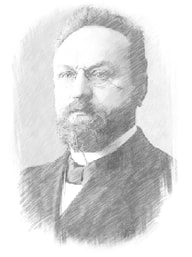 Herman Bavinck
Herman Bavinck
Christ is our holiness in the same sense in which he is our righteousness. He is a complete and all-sufficient Saviour. He does not accomplish his work halfway but saves us really and completely. He does not rest until, after pronouncing his acquittal in our conscience, he has also imparted full holiness and glory to us. By his righteousness, accordingly, he does not just restore us to the state of the just who will go scot-free in the judgment of God, in order then to leave us to ourselves to reform ourselves after God’s image and to merit eternal life. But Christ has accomplished everything. He bore for us the guilt and punishment of sin, placed himself under the law to secure eternal life for us, and then arose from the grave to communicate himself to us in all his fullness for both our righteousness and sanctification (1 Cor. 1:30). The holiness that must completely become ours therefore fully awaits us in Christ. — Herman Bavinck Reformed Dogmatics (Grand Rapids, Mi.: Baker Academic, 2008)
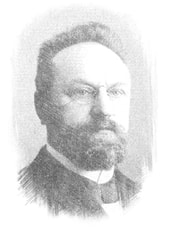 Herman Bavinck Files
Herman Bavinck Files
“For it is not we who call God by these names. We do not invent them. On the contrary, if it depended on us, we would be silent about him, try to forget him, and disown all his names. We take no delight in the knowledge of his ways. We tend continually to oppose his names: his independence, sovereignty, righteousness, and love, and resist him in all his perfections. But it is God himself who reveals all his perfections and puts his names on our lips. It is he who gives himself these names and who, despite our opposition, maintains them. It is of little use to us to deny his righteousness: every day he demonstrates this quality in history. And so it is with all his attributes. He brings them out despite us. The final goal of all his ways is that his name will shine out in all his works and be written on everyone’s forehead (Rev. 22:4). For that reason we have no choice but to name him with the many names his revelation furnishes us.” ― Herman Bavinck
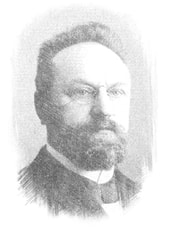 Herman Bavinck
Herman Bavinck
“The Gospel is temporary, but the law is eternal and is restored precisely through the Gospel. Freedom from the law consists, then, not in the fact that the Christian has nothing more to do with the law, but lies in the fact that the law demands nothing more from the Christian as a condition of salvation. The law can no longer judge and condemn him. Instead he delights in the law of God according to the inner man and yearns for it day and night.”
― Herman Bavinck
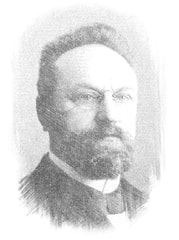 Herman Bavinck Files
Herman Bavinck Files
“Scripture speaks in a very human way about the essence of God, but it never transfers the sexual differentiation to him; God is never portrayed or presented as being feminine…God is a Father who takes pity on his children, but he also comforts like a mother comforts her son." - Herman Bavinck
"God is a unique substance, distinct from the universe, immaterial, imperceptible to the human senses, without composition or extension."
-Herman Bavinck, 𝘙𝘦𝘧𝘰𝘳𝘮𝘦𝘥 𝘋𝘰𝘨𝘮𝘢𝘵𝘪𝘤𝘴, II:185
“Scripture speaks in a very human way about the essence of God, but it never transfers the sexual differentiation to him; God is never portrayed or presented as being feminine…God is a Father who takes pity on his children, but he also comforts like a mother comforts her son." - Herman Bavinck
"God is a unique substance, distinct from the universe, immaterial, imperceptible to the human senses, without composition or extension."
-Herman Bavinck, 𝘙𝘦𝘧𝘰𝘳𝘮𝘦𝘥 𝘋𝘰𝘨𝘮𝘢𝘵𝘪𝘤𝘴, II:185
July 29, 2021: Gospel Coalition: Herman Bavinck: 100 Years On
One hundred years ago today, in the early hours of the morning, the great neo-Calvinist theologian Herman Bavinck (1854–1921) died. A century on, his work is undergoing a remarkable renewal of interest across the church and the academy, and his influence extends far beyond his Dutch Reformed starting point.
Sept 24, 2015: Crossway: Herman Bavinck: The Man and the Mind
To the extent that Herman Bavinck is known among English-speaking, theologically aware people, he is known as a thinker and as the author of his four-volume Reformed Dogmatics. Now, no one can read the Reformed Dogmatics and fail to learn some important personal things about Bavinck the theologian.
One hundred years ago today, in the early hours of the morning, the great neo-Calvinist theologian Herman Bavinck (1854–1921) died. A century on, his work is undergoing a remarkable renewal of interest across the church and the academy, and his influence extends far beyond his Dutch Reformed starting point.
Sept 24, 2015: Crossway: Herman Bavinck: The Man and the Mind
To the extent that Herman Bavinck is known among English-speaking, theologically aware people, he is known as a thinker and as the author of his four-volume Reformed Dogmatics. Now, no one can read the Reformed Dogmatics and fail to learn some important personal things about Bavinck the theologian.

